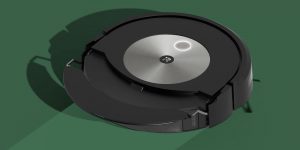Once again, Amazon is being accused of buying innovation, not innovating itself, and using acquisition to stifle or wipe out competitors. On October 17, the shareholders of iRobot Corp., the self-described “leading global consumer robot company,” approved Amazon.com, Inc.'s $1.7 billion purchase of the Roomba maker, but some iRobot shareholders have filed suit in New York in opposition to the deal.
iRobot’s products include robots for both vacuuming and mopping. According to company data, it has sold more than 40 million robots globally.
Amazon, meanwhile, dominates the e-commerce space and also has a major presence in the smart home arena. All told, its divisions generate $470 billion a year.
iRobot shareholder Jon Moore sued iRobot and its board of directors on October 4, saying the company violated federal law by authorizing an incomplete and misleading proxy statement with the Securities and Exchange Commission (SEC). He also challenged the potential conflicts of interest of company insiders, as well as the company's financial projections and evaluations. Moore wanted these alleged violations to be corrected before there was a vote, which did not happen.
The Federal Trade Commission (FTC), meanwhile, has earned praise from consumer advocates for making a second request for information, indicating it is taking a closer look at the deal. Consumer advocates are afraid the deal, if it goes through, will put consumer privacy at risk while further strengthening Amazon's dominance in the digital economy.
The pro-consumer groups Public Citizen and the International Brotherhood of Teamsters wrote in a joint letter that the transaction represents “an urgent threat to consumer privacy and competition in the digital economy.”
“By purchasing an already popular smart home device,” the groups continued, “[Amazon] will be able to extend the device's prevalence through anti-competitive pricing while using personal consumer data to further entrench their monopoly power in the digital economy. By selling the Roomba brand at or near a loss via the Prime subscription, the company can access more personal consumer data to buttress its anti-competitive advantages online. In short, the deal will further entrench Amazon's hold on the smart home technology ecosystem, eliminate competition in that sector, and enhance the company's monopoly power.”
Recently, antitrust enforcers around the world have been paying much more attention to major acquisitions, which they see as anticompetitive behavior by dominant tech players like Amazon, Apple, Facebook, and Google. They fear it will cause innovation to slow to a crawl and leave consumers with fewer choices and higher prices.






















